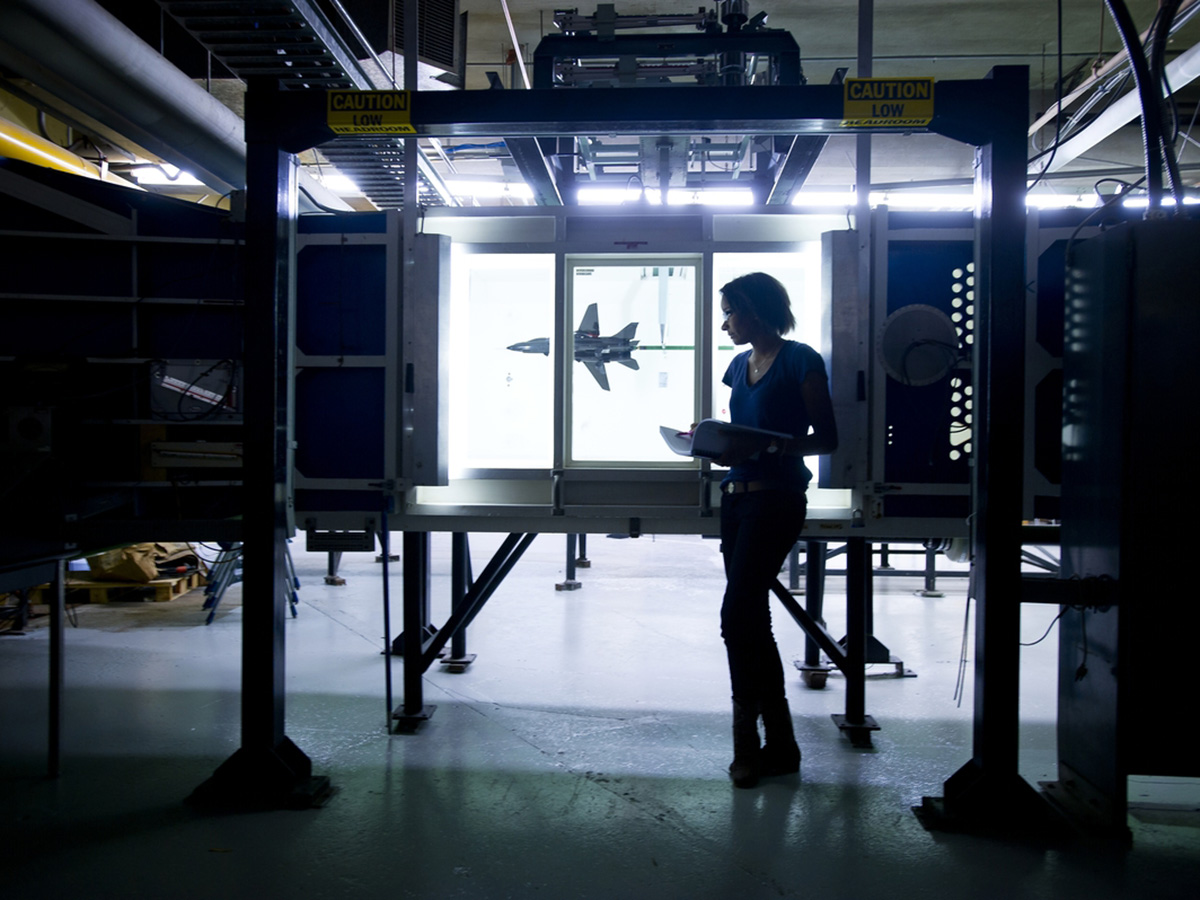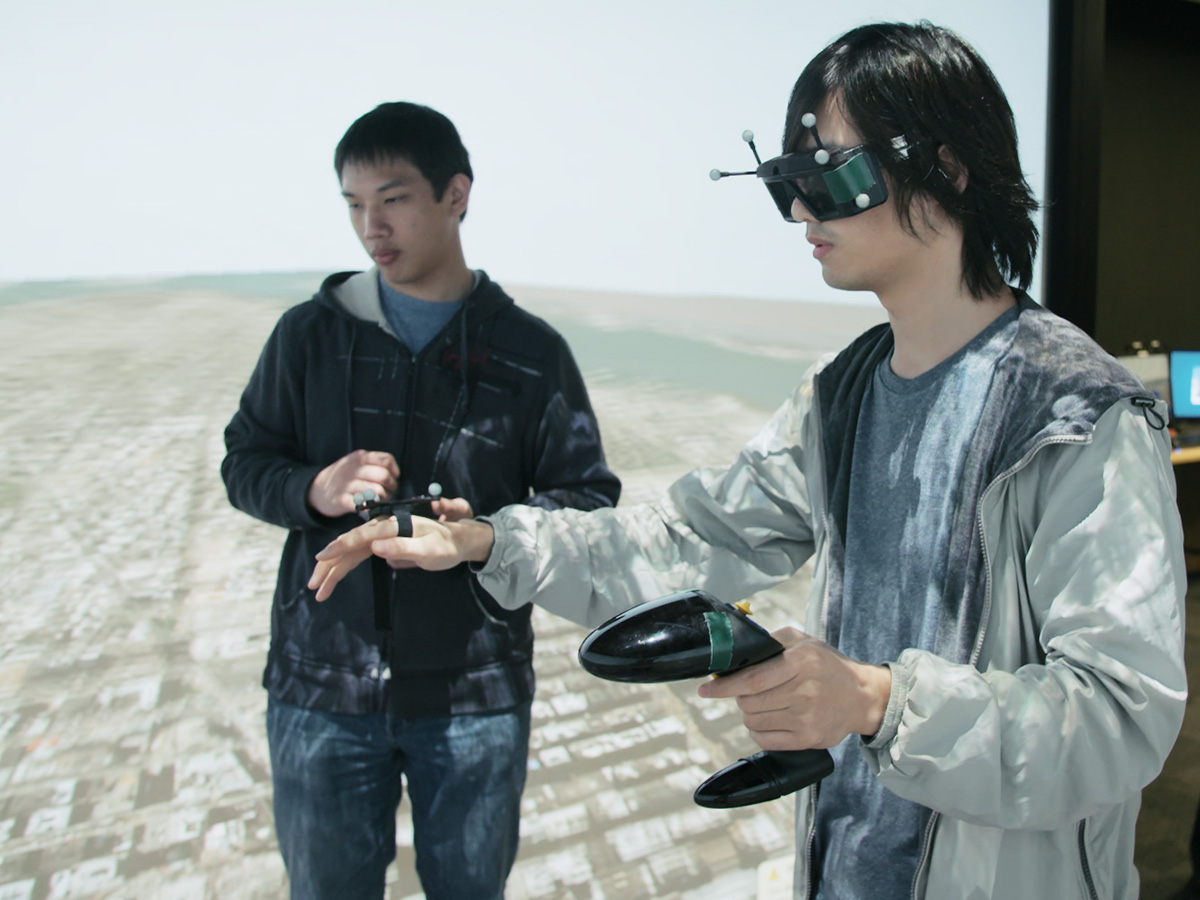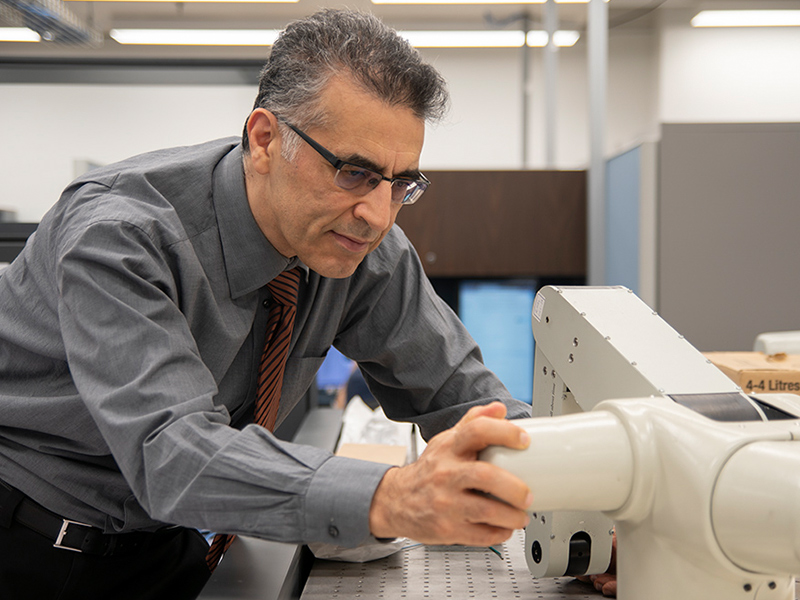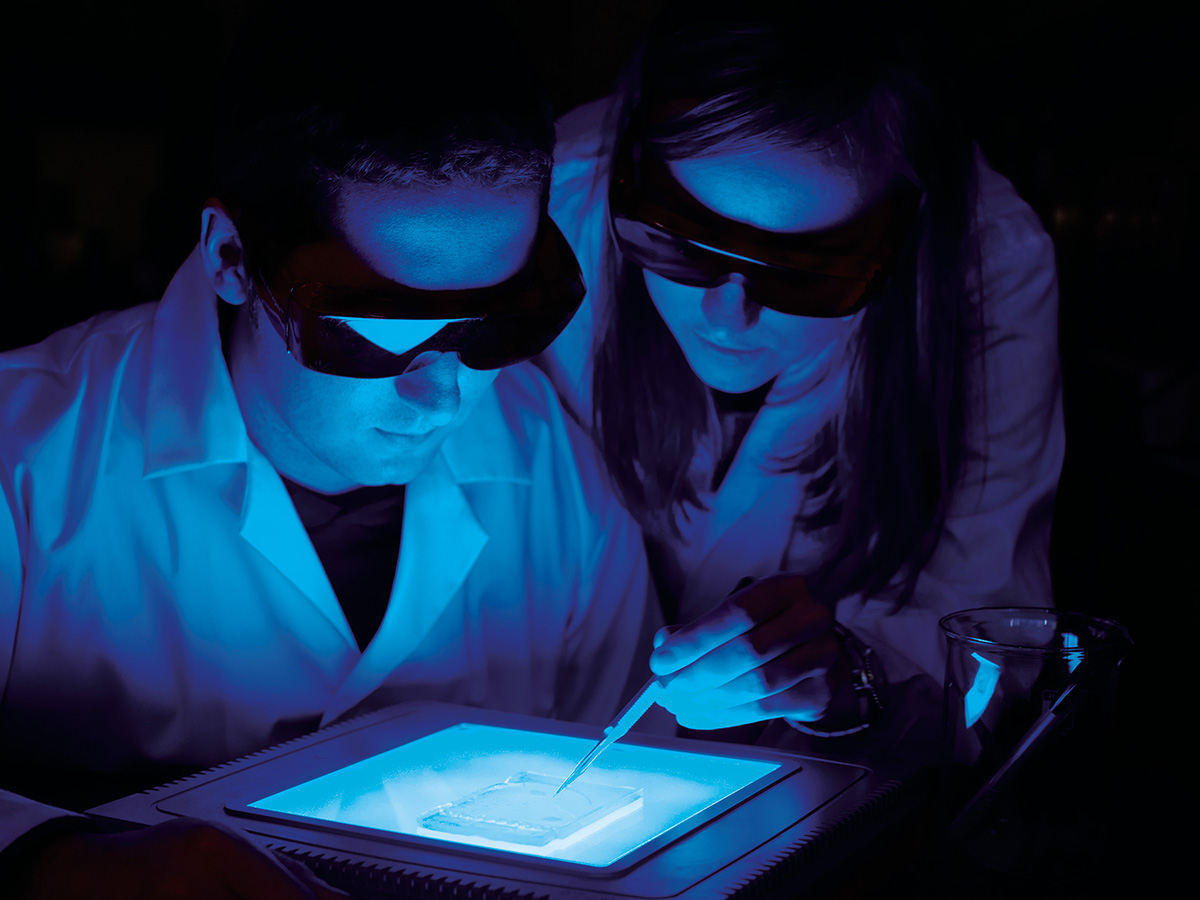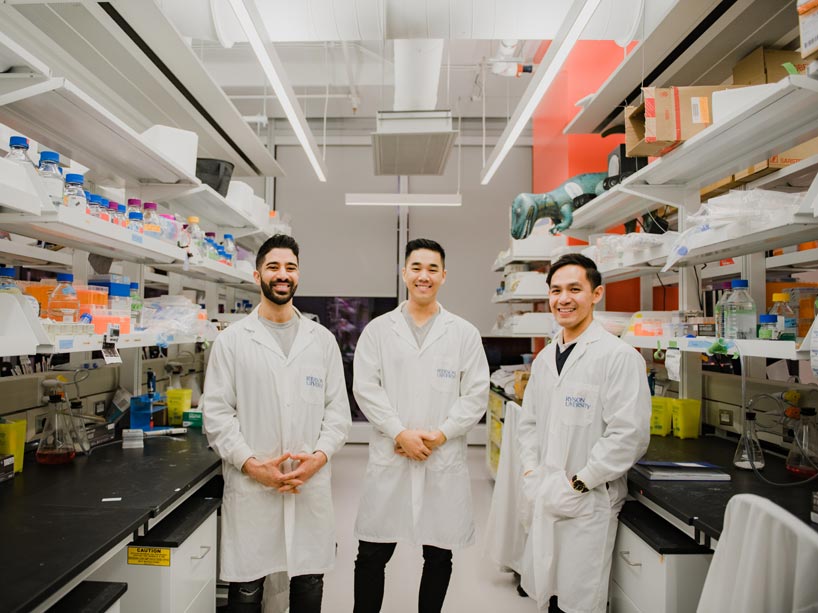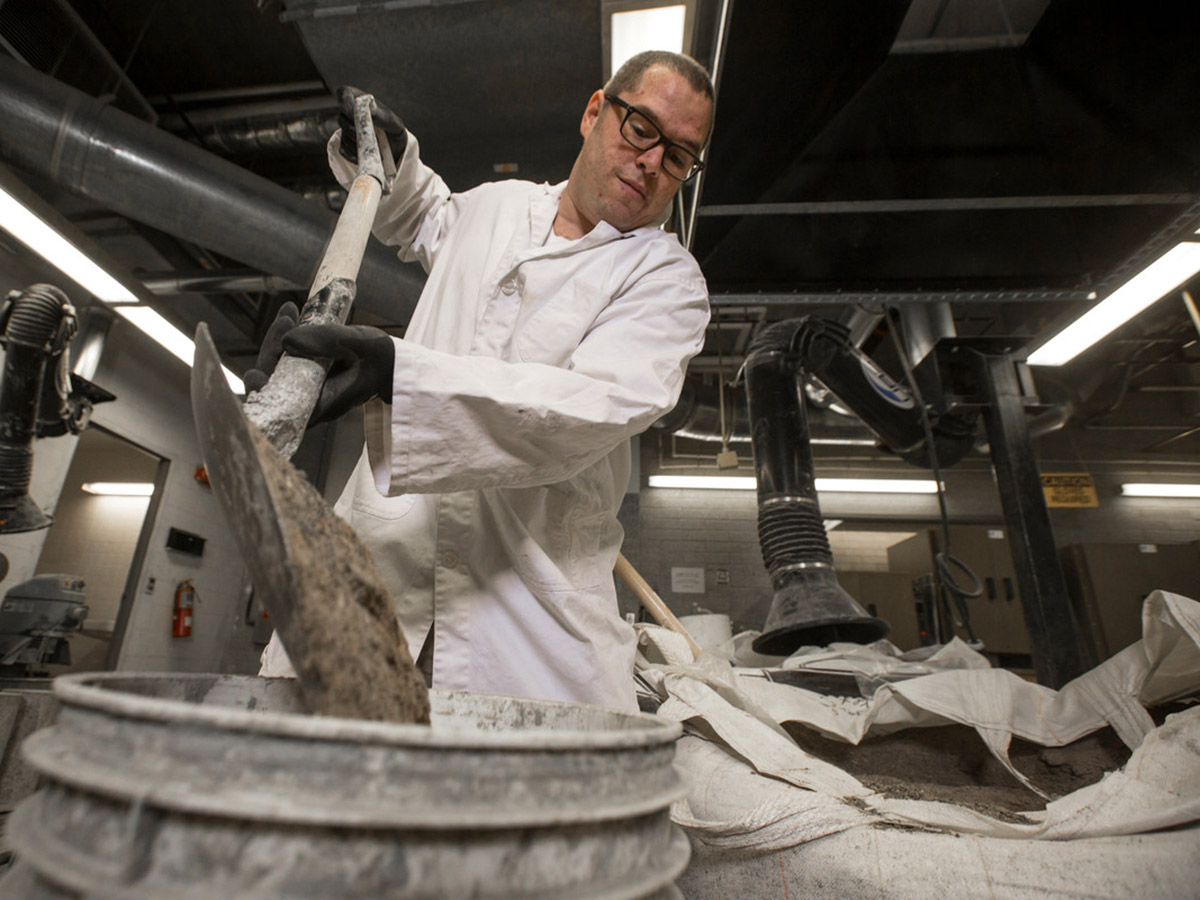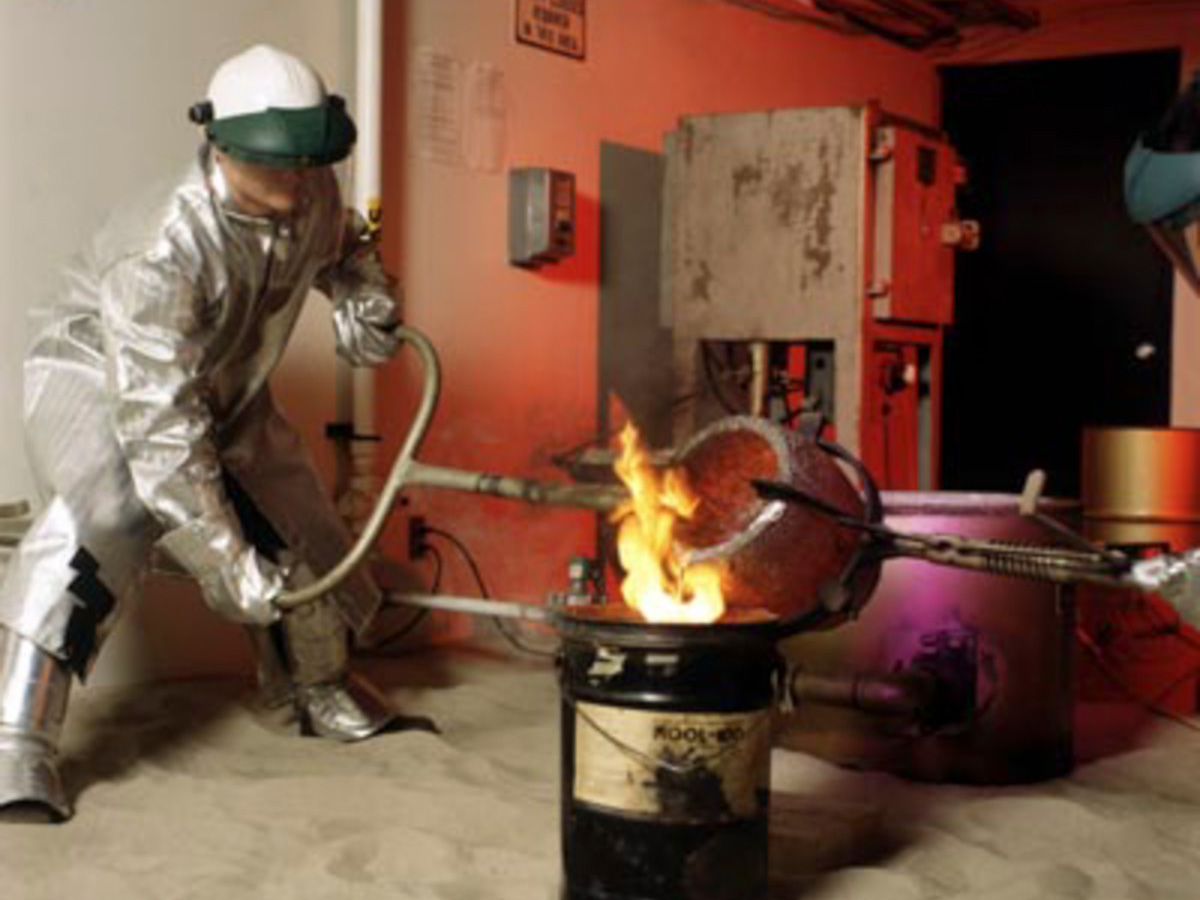Courses

Fall 2023
All first semester courses are common to all engineering programs. These courses (with the exception of CEN 100) are only offered in the Fall and Winter term
CEN 100: Introduction to Engineering
CHY 102: General Chemistry
MTH 140: Calculus 1
MTH 141: Linear Algebra
PCS 211: Physics: Mechanics
CEN 199*: Writing Skills
A required lower level liberal studies course from Table A (opens in new window) may be completed in the first semetser. Engineering students must take four liberal studies courses to graduate: two lower liberal courses (Table A (opens in new window) ), one upper liberal course (Table B (opens in new window) ) and one professional-level liberal course.
*CEN 199 is not an actual course, it is used to track the results of the mandatory Writing Skills Test. Upon passing of the test, it will appear as PSD on your transcript.
Undeclared? (opens in new window) You are required to fill out the Plan Change Form (external link, opens in new window) indicating your program of choice.

Winter 2024
There are three common courses in the winter term and two to three program specific courses. Except for ECN 801*, these courses only run in the Winter and Spring term.
*ECN 801 is also offered in the Fall term and sometimes run in the Spring or Summer term.
Common
ECN 801: Principles of Engineering Economics
MTH 240: Calculus II
PCS 125: Physics; Waves and Fields
Aerospace
AER 222: Engineering Design and Graphical Communication
CPS 125: Digital Computation & Programming
MTL 200: Material Science Fundamentals
Biomedical
BME 100: Introduction to Biomedical Engineering
CPS 188: Computer Programming Fundamentals
ELE 202: Electric Circuit Analysis
Chemical
CHE 200: Chemical Engineering Fundamentals
CHY 211: General Chemistry Laboratory
CPS 125: Digital Computation & Programming
Civil
CPS 125: Digital Computation & Programming
CVL 207: Graphics
MTL 200: Material Science Fundamentals
Computer & Electrical
CPS 188: Computer Programming Fundamentals
ELE 202: Electric Circuit Analysis
Industrial, Mechanical & Mechatronics
CPS 188: Computer Programming Fundamentals
MEC 222: Engineering Graphical Communication
MTL 200: Material Science Fundamentals
Second Year and Onwards
Beyond your first year of studies, each Engineering program has increasingly specialized required courses that can be reviewed in the undergraduate calendar (opens in new window) or by clicking the links below.
The grade earned for a repeated course is substituted for the previous grade in calculating subsequent grade point averages even if the later grade is lower. Both attempts are recorded on your transcript.
No course can be repeated more than two times, this means you only have three attempts to pass a course. If at least one of the course attempts results in a passing grade, the course will count towards graduation requirements irrespective of the sequence of grades earned. If after three attempts you fail a required engineering course, your academic standing will change to Permanent Program Withdrawal. This means that you can no longer study Engineering at any Canadian university.
Course Intentions (opens in new window) is the process where you indicate the courses you wish to take in the upcoming academic year via MyServiceHub. With the exception of your very first semester in engineering, Toronto Metropolitan University does not pick courses for you, even if they are required for your program. It is your responsibility to complete course intentions to ensure you have a complete timetable for the following semester or year. When choosing your courses, ensure that you have the required prerequisites.
Liberal studies (opens in new window) courses are a core component of Toronto Metropolitan University's curriculum, designed to develop your capacity to understand and appraise the social, cultural, and scientific context in which you will work as a professional and live as an educated citizen. Engineering students are required to complete two Lower Level Liberal Studies and two Upper Level Liberal Studies in order to graduate.
Examples of First-Year Schedules
With a liberal course
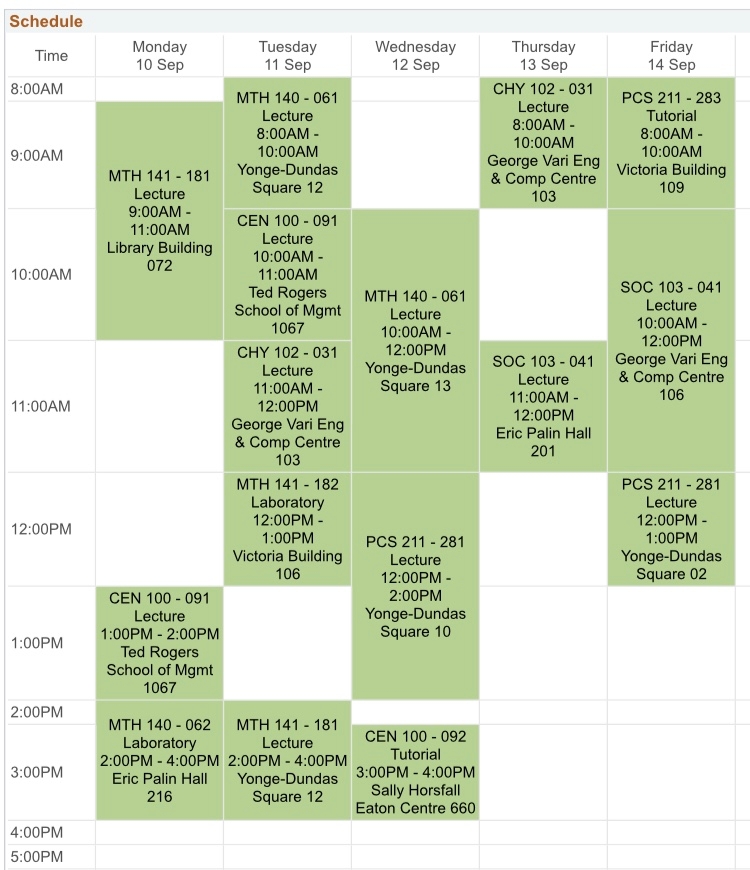
Without a liberal course
How to Read Your Schedule
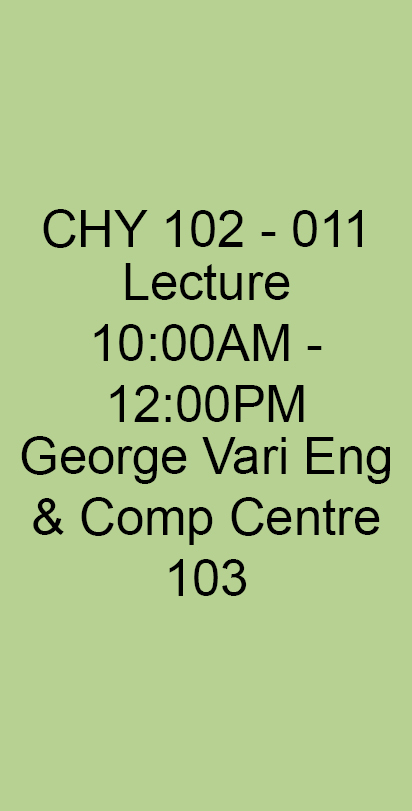
Course Code/Section
The first six digits digits indicate the course code on MyServiceHub, i.e CHY 102 = Chemistry 102. The last three digits indicate the section and type. i.e. 011 = Section 01, while the last number indicates type: 1 = lecture, 2 = lab, 3 = tutorial. It is important you know your section # for labs, tutorials, and exams.
Type
This line also tells us if the class is a lecture, lab, or tutorial.
Time/Duration
All classes start 10 minutes after the hour. In this case, the start would start at 10:10AM and end at 12:00PM.
Location
This line indicates where the class is held.
Room Number
The first number represents the floor level and the numbers in the tens and ones state the room number. In this case, the class would be on floor one and in room 03.
